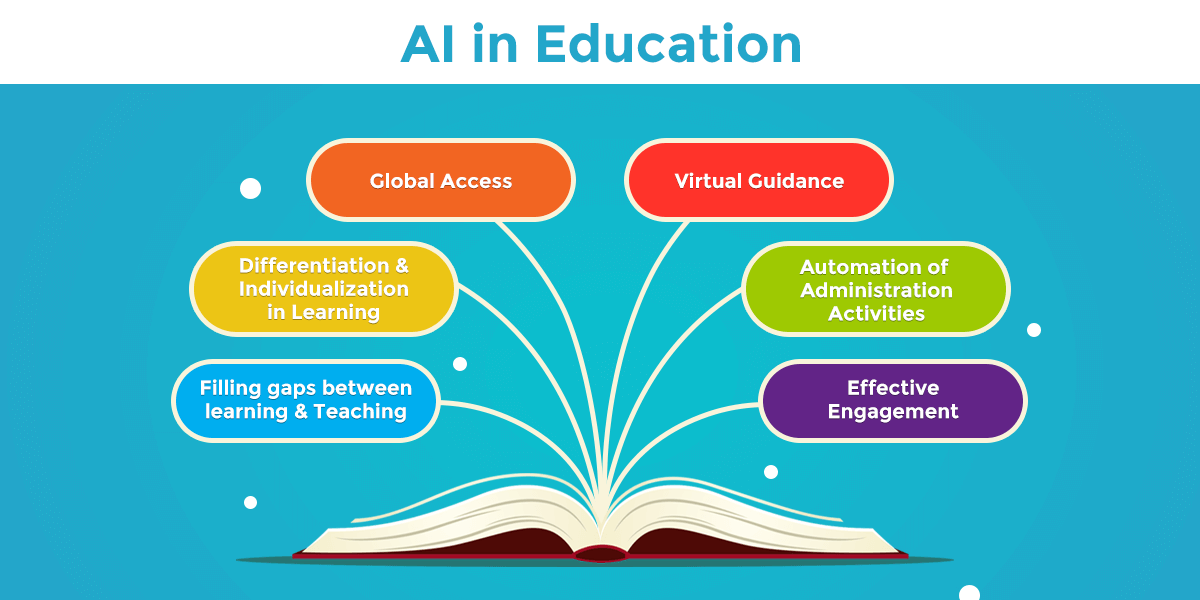The role of Artificial Intelligence (AI) in education is transforming the landscape of education, offering unprecedented opportunities to enhance learning experiences, personalize education, and improve administrative efficiency. The Role of Artificial Intelligence (AI) in Education As we move into the future, AI’s integration into educational systems promises to revolutionize how we teach and learn, creating a more engaging and effective educational environment.
Role of Artificial Intelligence (AI) in Education
1. Personalized Learning Experiences
One of the most significant The Role of Artificial Intelligence (AI) in Education is its ability to provide personalized learning experiences tailored to individual students’ needs. AI algorithms can analyze students’ learning styles, strengths, and weaknesses, adapting educational content and teaching methods accordingly. This personalized approach ensures that each student can learn at their own pace and in a way that best suits their unique learning preferences.
For example, intelligent tutoring systems can provide real-time feedback and customized exercises to help students grasp complex concepts. These systems can identify areas where a student is struggling and offer additional resources or alternative explanations to reinforce understanding. This level of personalization not only enhances student engagement but also improves learning outcomes.
2. Intelligent Content Creation
AI is revolutionizing content creation in education, enabling the development of intelligent and interactive learning materials. AI-powered tools can generate customized textbooks, study guides, and quizzes based on curriculum requirements and individual student needs. These tools can also create multimedia content, such as videos and interactive simulations, to enhance the learning experience.
Moreover, AI can assist in the development of adaptive learning platforms that adjust the difficulty level of content based on a student’s performance. These platforms provide a dynamic learning environment that continuously evolves to meet the changing needs of students, ensuring that they remain challenged and motivated.
3. Enhanced Administrative Efficiency
AI is not only transforming the classroom but also improving the efficiency of educational administration. AI-driven systems can automate routine administrative tasks, such as grading, scheduling, and attendance tracking, freeing up educators to focus on teaching and mentoring students. These systems can analyze large volumes of data to identify trends and insights, helping educational institutions make informed decisions and optimize their operations.
For instance, AI can streamline the admissions process by analyzing application data and predicting student success rates, ensuring that institutions select candidates who are most likely to thrive in their programs. Additionally, AI-powered analytics can help schools identify at-risk students early on, allowing for timely intervention and support.
4. Bridging Educational Gaps
AI has the potential to bridge educational gaps and provide quality education to underserved populations. Online learning platforms powered by AI can offer access to high-quality educational resources and courses to students in remote or underfunded areas. These platforms can provide personalized learning experiences, virtual tutoring, and interactive content, ensuring that all students have the opportunity to receive a quality education.
Furthermore, AI-driven language translation tools can break down language barriers, making educational content accessible to non-native speakers. This capability is particularly valuable in multicultural classrooms and global education initiatives, promoting inclusivity and equal learning opportunities for all.
Conclusion
The Role of Artificial Intelligence (AI) in Education is shaping the future of learning, offering personalized, efficient, and inclusive educational experiences. By leveraging AI technology, educators can create dynamic and engaging learning environments that cater to the unique needs of each student. As AI continues to advance, its impact on education will only grow, paving the way for a future where learning is more accessible, effective, and enjoyable for all. Embracing AI in education is not just a technological advancement; it is a crucial step towards a more equitable and innovative educational landscape.




